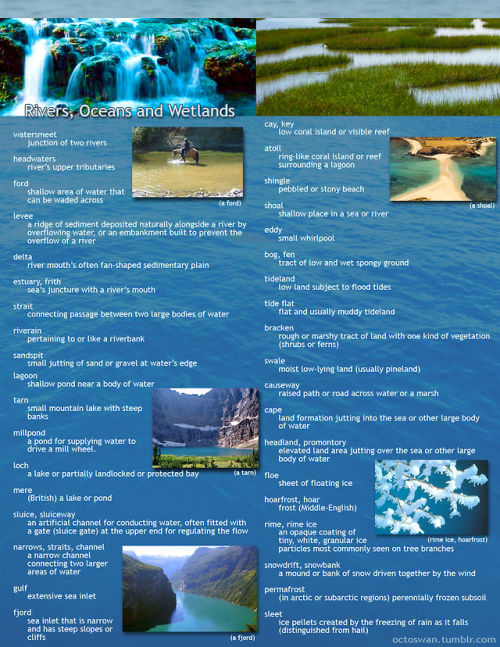
Izzy. 28. White. She/they/he. Blog to help me develop my writing. It's kind of a mix between writing inspiration, writing tips, and my own writing. My projects are still in development (I've posted like. One excerpt). Originally was just focused on my story, Wanderer (hence, the name), but I expanded it.
360 posts
20 Mistakes To Avoid In Fantasy Stories
20 Mistakes To Avoid In Fantasy Stories

Ko-Fi || Masterlist || Work In Progress || Request
– This is the second installment of an ongoing “20 Mistakes to Avoid in…(insert genre here)” series, which started with 20 Mistakes To Avoid in YA Romance. I’ve decided to continue this series, but written in a more concise fashion so that it’s a lighter read for you guys with all of the same main ideas and key points. I hope you enjoy this as much as the first, and if you have any requests for more articles in this series, leave them in the comments below!
Being Impatient
Develop your story at a steady pace that makes sense for your plot and your characters. Don’t base the pacing of your story on other fantasy novels. This happens a lot in Fantasy, typically with political turmoil and development of relationships, with political systems being explained very slowly to a point where you forget important details, and romance being forced to develop too quickly, which makes it feel unrealistic and disingenuous.
Not Thinking Outside The Box
Your story doesn’t have to mirror the typical characteristics of fantasy. Explore ways to diversify your cast that aren’t just mimicking whatever series you just read. Create unique political systems that your characters struggle with. Make your characters’ traits contradictory, rather than assigning them an archetype.
Having Loose Rules For Your Magic System
Magic systems need hard lines and declared limitations. Magic systems without those things are boring to write and lazy-looking to critical readers. Magic shouldn’t be your characters’ all-powerful saving grace whenever you don’t feel like coming up with an actual method of clever escape from danger.
Unoriginally Using Common Creatures
Having dragons and fairies is completely okay in fantasy, but it will be hard to get away with including those things when you have put no unique spin on them that leaves a specific version of that character in your reader’s mind when they think of your story.
Unoriginal “Chosen One” Plots
“Chosen One” plots are interesting and they’re inescapable, but like the use of universally popular fairytale creatures, you need to put a unique and stylistic twist on the original idea to make your story stand out in the reader’s memory.
Boring, Overused Settings
Forests are cool. Have a scene in a forest. But make it a forest that is unique to the world in your book, with characteristics specific to your story setting, and with purposeful details that add to the progression of the plot.
Self-Insert Main Characters
Don’t base characters on yourself. Add your quirks and behaviours to characters sparingly and with intention. If you have a quirk that happens to seem like something a character would do, sure, have them adopt it, but otherwise, separate your own image from the story. You’ll be too easy on your characters if you base them on yourself.
Slow Beginnings
Don’t start your story with an embarrassingly slow exposition. In fantasy, it’s valuable to take the advice of “starting in the middle of the action”. This doesn’t mean start in the middle of the plot, but don’t start weeks and weeks ahead of it either. Find a happy medium.
Too Many Characters
It’s great to juggle a bunch of characters in one story, but be realistic. Your reader needs to be able to keep up. The main thing you must do is recognize the difference between a main character, a secondary character, and a supporting character, and then develop them appropriately.
Info Dumping
Reveal information to your readers gradually and at appropriate points in your story, not in several huge paragraphs scattered throughout the story whenever you realize, “oh no, they need to know this, here’s the complete rundown in a massive paragraph, including lore”.
Boring, Underdeveloped Cast
On the other side of the point of too many characters, make sure that your main cast has the majority of your attention. Have a few fully developed characters, then several characters that are somewhat developed, but basically only explained to the point where they need be.
Lacking Plot Full Of Repetitive Action
Don’t include an action scene if it serves no purpose or is a complete retelling of an action scene that has already occurred. Develop your plot rather than include action because you think a fantasy novel needs 12 6-page action scenes that all read the exact same way with the exact same outcome.
Skimping On The Female Characters
Female characters should be developed as people, not “strong female relatable characters”. Don’t make a female character completely indifferent to men simply because you want the reader to know she doesn’t need one. Blandly put, a female character can have a happy relationship, a gentle demeanor, and not know how to hold a gun, and still demonstrate strength, resilience, and badassery. Strength comes in different forms. That’s all.
Not Diversifying The Cast
Make casts diverse. Don’t try to make up excuses for not having people of color or people of different sexualities in fantasy. If your book doesn’t include humans, fine, but otherwise, please do yourself a favor and be inclusive.
Unnecessarily Confusing The Reader
Try to state the details of your story in a way your readers can understand and carry into their reading experience. If you make up a language for your story, explain it simply. If the political system is completely unlike any your reader has seen, explain it. Of course, you should leave some room to connect the dots, but not all readers learn that stuff the same, or understand it fully from small traces of information.
Stupid Antagonists
Make smart, cunning, ambitious, and interesting antagonists with complicated emotions, realistic trauma, understandable points of view, and qualities the reader can empathize with.
Making Fantasy Worlds Paradise
Not every part of any world would be believably fantastical and perfect. Lack of roughness and hardship in your world will disconnect your reader, because nobody has experienced a utopia and they cannot empathize with it.
Not Making Magic Cost Anything
The best magical systems are the ones where magic comes with a price. That creates stakes, stakes create tension, and tension builds suspension and makes your story addictive to your reader. If magic doesn’t cost anything, your characters will use it all the time for everything for no reason and your story will probably be uninteresting.
Overdoing It
Fantasy worlds should be interesting and unique, but understandable to the reader. Don’t make your world or your plot so complex and out of the framework of fantasy or your reader will be confused the entire time.
Ignoring Implications of World Elements
Everything that occurs will have consequences. Show those consequences. If a castle is blown to bits, the people in and around it will be affected. If one uses magic to kill someone, that someone’s family will be in mourning, people will find out, there will be investigation, etc. Consider the implications of the events in your story, as well as how world-building details will affect your characters’ conflict-resolution.
Support Wordsnstuff!
If you enjoy my blog and wish for it to continue being updated frequently and for me to continue putting my energy toward answering your questions, please consider Buying Me A Coffee, or pledging your support on Patreon
Request Resources, Tips, Playlists, or Prompt Lists
Instagram // Twitter //Facebook //#wordsnstuff
FAQ //monthly writing challenges // Masterlist
MY CURRENT WORK IN PROGRESS (Check it out, it’s pretty cool. At least I think it is.)
Studyblr || Studygram
Check out my YouTube Channel!
-
 xsudd3n-1deasx liked this · 9 months ago
xsudd3n-1deasx liked this · 9 months ago -
 calfwoonie reblogged this · 1 year ago
calfwoonie reblogged this · 1 year ago -
 calfwoonie liked this · 1 year ago
calfwoonie liked this · 1 year ago -
 petasos liked this · 1 year ago
petasos liked this · 1 year ago -
 manialuvstowrite reblogged this · 1 year ago
manialuvstowrite reblogged this · 1 year ago -
 sprook-children liked this · 1 year ago
sprook-children liked this · 1 year ago -
 heckcareoxytwit liked this · 1 year ago
heckcareoxytwit liked this · 1 year ago -
 heckcareoxytwit reblogged this · 1 year ago
heckcareoxytwit reblogged this · 1 year ago -
 shoheisehun liked this · 2 years ago
shoheisehun liked this · 2 years ago -
 violet-rose-petal liked this · 2 years ago
violet-rose-petal liked this · 2 years ago -
 oxymitch-archive liked this · 2 years ago
oxymitch-archive liked this · 2 years ago -
 garry34 liked this · 2 years ago
garry34 liked this · 2 years ago -
 violet-rose-petal reblogged this · 2 years ago
violet-rose-petal reblogged this · 2 years ago -
 aaustinwrites reblogged this · 2 years ago
aaustinwrites reblogged this · 2 years ago -
 martialwriter liked this · 2 years ago
martialwriter liked this · 2 years ago -
 dobsdealer liked this · 3 years ago
dobsdealer liked this · 3 years ago -
 tacos-writing-reblogs reblogged this · 3 years ago
tacos-writing-reblogs reblogged this · 3 years ago -
 corvuscantat reblogged this · 3 years ago
corvuscantat reblogged this · 3 years ago -
 heehehehehehehe-blog1 liked this · 4 years ago
heehehehehehehe-blog1 liked this · 4 years ago -
 lilac-cinamon liked this · 4 years ago
lilac-cinamon liked this · 4 years ago -
 cirquedereve liked this · 4 years ago
cirquedereve liked this · 4 years ago -
 thenerdgirlishere liked this · 4 years ago
thenerdgirlishere liked this · 4 years ago -
 jeonghansexi liked this · 4 years ago
jeonghansexi liked this · 4 years ago -
 falloutgirl789-blog-blog-blog liked this · 4 years ago
falloutgirl789-blog-blog-blog liked this · 4 years ago -
 selfconfessedfangirl liked this · 4 years ago
selfconfessedfangirl liked this · 4 years ago -
 romwryter reblogged this · 4 years ago
romwryter reblogged this · 4 years ago -
 forevertheanimekid liked this · 4 years ago
forevertheanimekid liked this · 4 years ago -
 cass-nes liked this · 4 years ago
cass-nes liked this · 4 years ago -
 groovysouldatskull liked this · 4 years ago
groovysouldatskull liked this · 4 years ago -
 sadsimpleton-moved liked this · 4 years ago
sadsimpleton-moved liked this · 4 years ago -
 legallysagittarius liked this · 4 years ago
legallysagittarius liked this · 4 years ago -
 autummika liked this · 4 years ago
autummika liked this · 4 years ago -
 pink-winter-bouquets liked this · 4 years ago
pink-winter-bouquets liked this · 4 years ago -
 127writes reblogged this · 4 years ago
127writes reblogged this · 4 years ago -
 writebreaux reblogged this · 4 years ago
writebreaux reblogged this · 4 years ago -
 firehouse-118 liked this · 4 years ago
firehouse-118 liked this · 4 years ago -
 dumbassshimp reblogged this · 4 years ago
dumbassshimp reblogged this · 4 years ago -
 uraniawrites liked this · 4 years ago
uraniawrites liked this · 4 years ago -
 animeschibia reblogged this · 4 years ago
animeschibia reblogged this · 4 years ago -
 aerisofthewhite liked this · 4 years ago
aerisofthewhite liked this · 4 years ago -
 bloodtiesblog liked this · 4 years ago
bloodtiesblog liked this · 4 years ago -
 for-the-collection liked this · 4 years ago
for-the-collection liked this · 4 years ago -
 elwolfen liked this · 4 years ago
elwolfen liked this · 4 years ago
More Posts from Developingwanderer
“In my defense, I was left unsupervised.” Would any of your OCs ever say this or something similar? What are they likely to have done in order to receive scrutiny in this case?





I made these as a way to compile all the geographical vocabulary that I thought was useful and interesting for writers. Some descriptors share categories, and some are simplified, but for the most part everything is in its proper place. Not all the words are as useable as others, and some might take tricky wording to pull off, but I hope these prove useful to all you writers out there!
(save the images to zoom in on the pics)
I see a lot of writing advice, particularly about giving characters flaws. The main advice is “everyone has flaws! make sure to give your character flaws or else it’s not realistic!” And after thinking about it… I would like to challenge this.
It essentially posits a view of human nature that there are good and bad traits, and that these traits can be neatly diagrammed into separate columns, one set of which can and should be eliminated. It tends to go along with a view that posits character development should be about scrubbing away of “flawed” traits until the character achieves more a higher level of goodness, or else the character doesn’t and falls into tragedy. This is not untrue, necessarily. There are definitely some “flaws” that are 100% bad and sometimes a good arc is about slowly losing them. However, I could call this advice incomplete.
Consider thinking about it this way. Characters have traits and often whether or not that trait is a flaw is purely circumstantial.
For instance, fairy tales I read as a child. In some, when an old beggar asked for money on the road, it was a secret test of character. The prince who gave the old man money or food would be rewarded. But in other folktales I read, the old beggar would be malevolent, and any prince who stooped to help him would be beaten, punished for letting his guard down. Now, in a story as well as in real life, either of these scenarios can occur–a stranger who asks for help can be benevolent or malevolent. So which is the flaw? Is it a “flaw” to be compassionate? or is it a “flaw” to be guarded?
Trick question–it’s purely conditional. Both traits are simultaneously a strength and a weakness. Either has an advantage, but either comes with a price as well. And whether the price is greater than the advantage depends on circumstance. The same can be said for most character traits, in fact!
An agreeable character who gets along with everyone will be pressured into agreeing with something atrocious because it’s a commonly held viewpoint. A character who’s principled and holds firm even under great pressure will take much, much longer to change their mind when they are actually in the wrong. A character who loves animals and loves to shower them with affection will get bitten if they try the same on every animal. As the circumstances change, flaws become strengths, and strengths become weaknesses. And even a trait that’s wholly virtuous, such as compassion, comes with a price and can be turned for the worst.
You don’t have to think about inserting flaws into your character. Your character, even the most perfect “Mary Sue,” is already flawed the moment you give her any traits at all. The problem with Mary Sue isn’t a lack of flaws, it’s a lack of circumstances to challenge her properly, to show her paying the natural price. Your job as an author is to create circumstances in the narrative that 1) justify why these traits exist in your character 2) show what your character gains from these traits and then 3) change the circumstances to challenge her.
Make your character pay the price for their traits, for their choices. And then, when challenged, you can make a hell of a story by showing us how they adapt, or why they stick to their guns anyway.
Which OC is the unstoppable force, and which OC is the immovable object?
